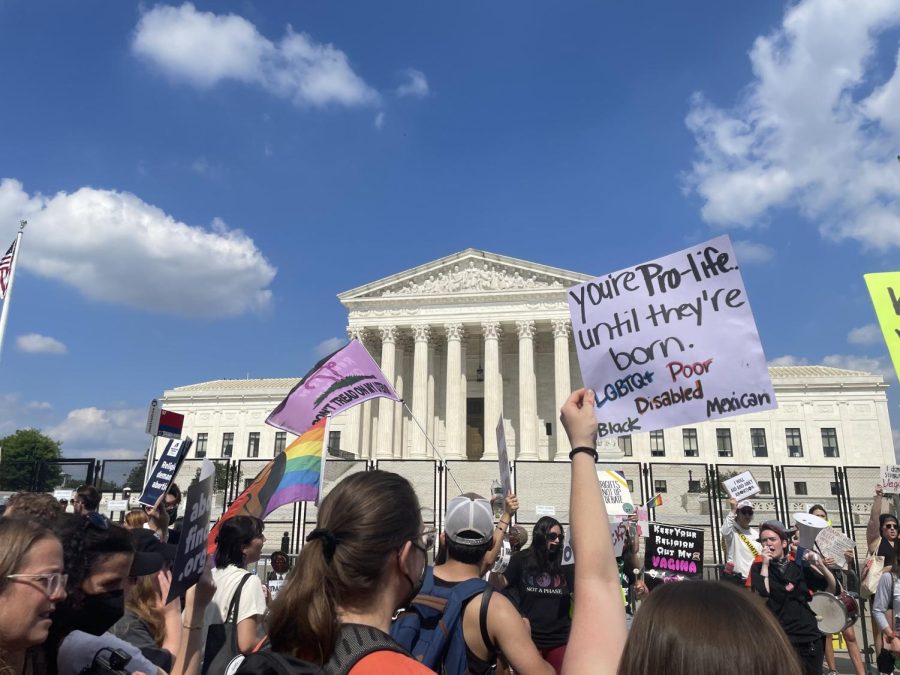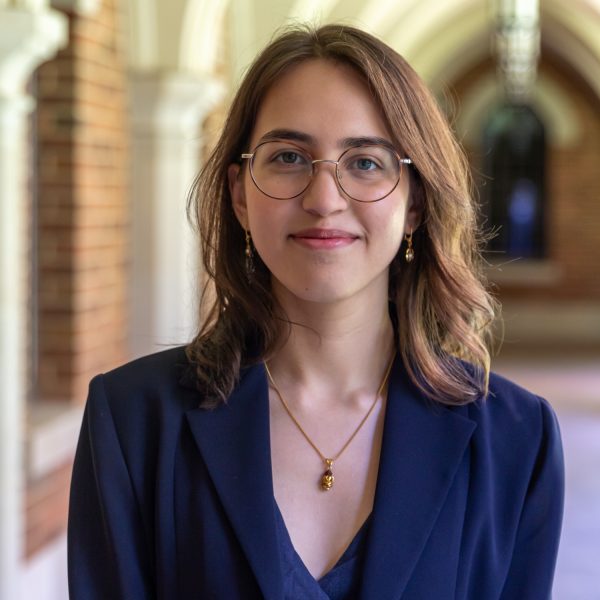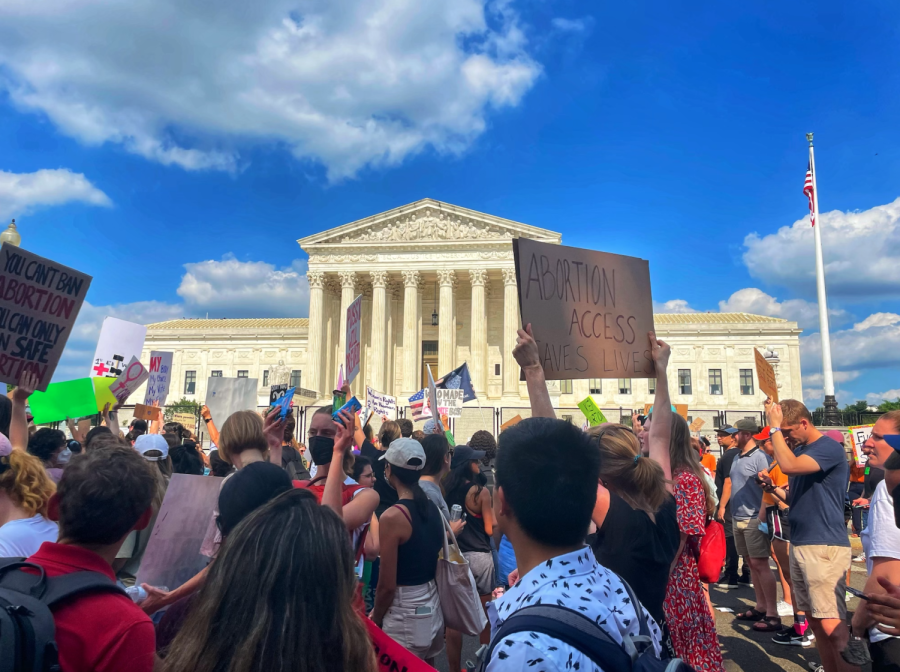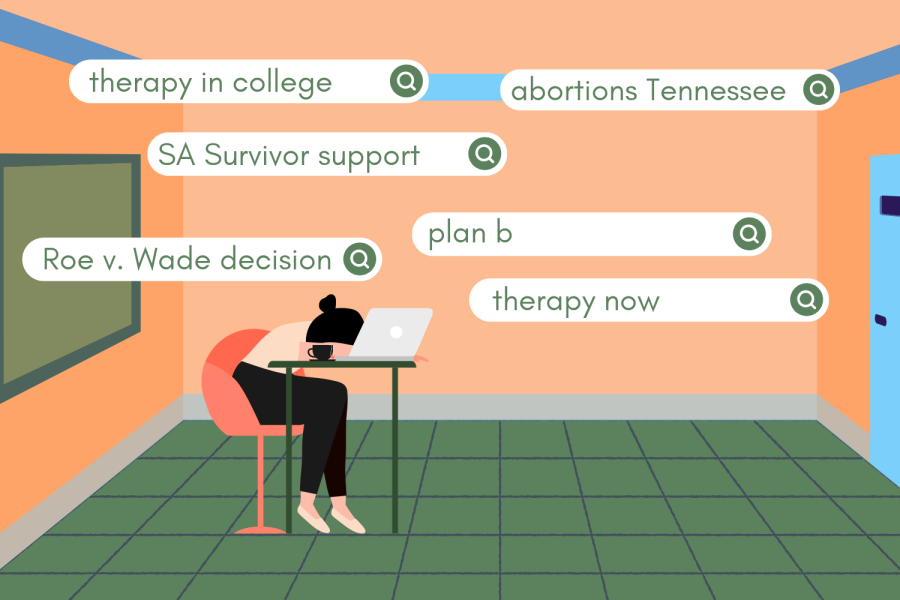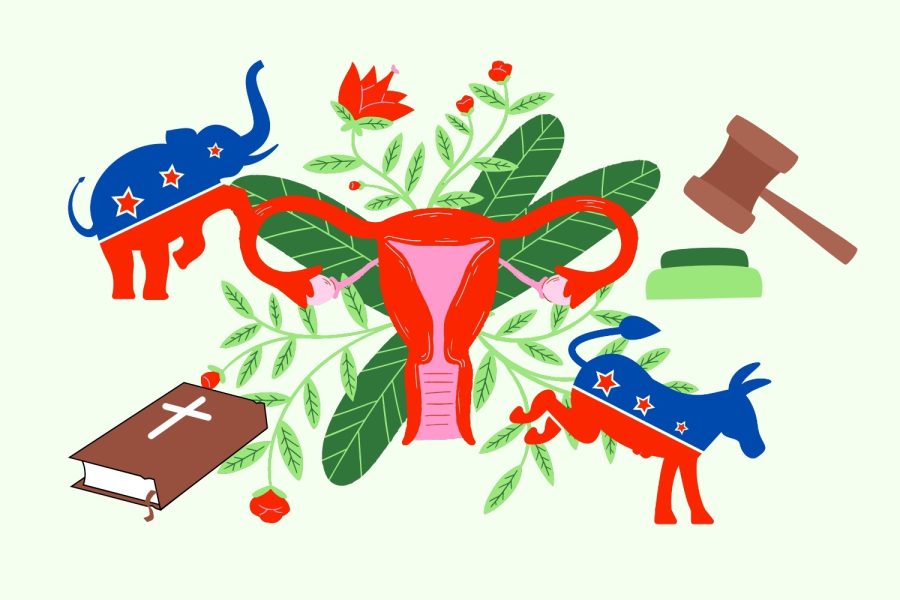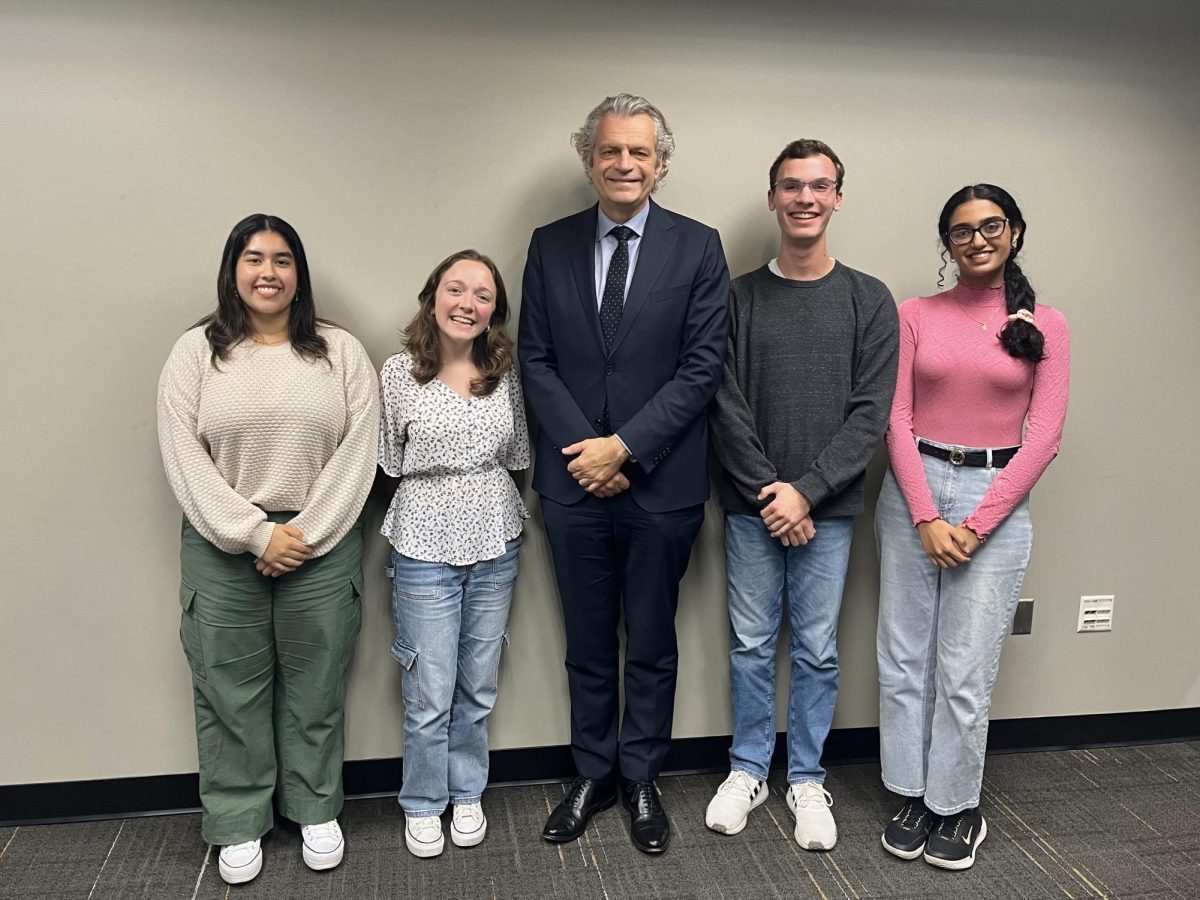UPDATED: This piece was updated on July 14, 2022, at 11:30 a.m. CDT to include information about insurance plan release timelines.
UPDATED: This piece was updated on July 13, 2022, at 10:30 a.m. CDT to include information about student and faculty health insurance.
In response to the Supreme Court’s decision to overturn Roe v. Wade (1973) in Dobbs v. Jackson’s Women Health Organization (2022), Tennessee enforced a six-week abortion ban on June 28 and will enact a near-total abortion ban—with no exceptions for rape or incest—on July 24. In a June 24 email to the Vanderbilt community, Chancellor Daniel Diermeier announced the creation of a university task force to evaluate the effects of Tennessee’s bans on the university and the state.
The Office of the Provost formed the task force in early June and selected its members on the basis of expertise in health and wellness, per Pam Jones, associate vice chancellor for health and wellness. Its members, none of whom besides Jones responded to The Hustler’s requests for comments, work in numerous sectors of the university and Vanderbilt University Medical Center (VUMC), including the political science, anthropology, obstetrics and gynecology departments. VUMC administrators and medical professionals did not respond to The Hustler’s requests for comments.
“While the outcome was expected by many, and we discussed potential implications prior to the decision, following the court’s ruling we have a fuller understanding of the legal complexities and are now moving forward to identify and implement concrete ways the university can support the health, safety, and well-being of the Vanderbilt community within the context of federal and Tennessee laws,” Jones said in an email to The Hustler.
Jones explained that the task force is divided into subcommittees—including student and employee health, clinical care and academic instruction—responsible for researching and proposing solutions to mitigate the effects of the Tennessee abortion ban. Per a university representative, among the specific issues currently being investigated by the task force are undergraduate and graduate student as well as faculty health insurance. The 2022-23 Student Health Insurance Plan (SHIP) covers 90% of abortion costs at in-network providers and 60% at out-of-network providers.
The SHIP team declined to answer The Hustler’s questions regarding the future and limitations of these insurance coverages—including whether out-of-state travel for abortion procedures will be covered, the percentage of coverage under faculty health insurance for abortion procedures and if SHIP’s abortion coverage will change for the 2023-24 academic year. The team also declined to comment on when the 2023-24 plan will be released; however, in a July 14 email to The Hustler, the university stated that yearly plans typically are released in the spring.
“We are currently awaiting updates from our insurance carrier – Aetna,” the email reads.
In an email to The Hustler, SHIP stated that Aetna, Vanderbilt’s health insurance provider, and Academic Health Plans, Vanderbilt’s student health insurance plan administrator, are currently under a “gag order” regarding abortion coverage.
“The task force is simply still in the process of working through the logistics and sharing anything at this point would be premature,” the representative’s email reads. “That is the extent of it.”
Diermeier’s June 24 email reads that the task force aims to carry out the university’s mission of “fostering open and civil discourse” and that conversations surrounding Dobbs and abortion are “vitally important.” Jones emphasized this goal, stating that a priority of the task force is to develop initiatives that allow for “discussion and civic engagement.”
“We will soon announce a number of forums and discussion spaces as well as opportunities for academic and educational engagement around the decision,” Diermeier said in his June 24 email.
As part of this effort, Jones shared that her fellow members have begun seeking student feedback via “informal engagements with various students”—including a meeting during the week of July 18 between Dean of Students G.L. Black and Vanderbilt Student Government (VSG) members—and will establish additional opportunities for feedback and questions. Black did not respond to The Hustler’s request for comment.
Similarly, Vanderbilt’s Margaret Cuninggim Women’s Center is hosting a “processing session” in the wake of the decision on July 14 at 12 p.m. CDT in the E. Bronson Ingram College Great Room. The purpose of the in-person meeting is to provide a forum for information and open conversation in the wake of the Dobbs decision. Requests by several individuals for a virtual option for the session are “being considered,” per Women’s Center Director Dr. Rory Dicker.
Dr. Katherine Crawford, director of the Department of Gender and Sexuality Studies (GSS), shared her reaction to the court’s decision and reaffirmed her department’s role in providing a safe space for discussions about abortion and reproductive rights.
“Roe was about women’s right to decide for themselves. To me, this [decision] reveals that women are not equal citizens,” Crawford said in an email to The Hustler. “GSS will continue to be an intellectual place to explore what issues such as abortion mean for all genders, across class, race, ethnicity and national lines.”
Crawford also said Vanderbilt has a unique role to fulfill as a leading research university in the South.
“I hope that Vanderbilt is a leader in building a sturdy structure of support for reproductive rights, and that, as a major economic engine in Tennessee, it makes its voice matter,” Crawford said.
Dr. Laurel C. Schneider, chair of the Department of Religious Studies, expressed her concerns about the intersection of religious and political motives. She also acknowledged how civil society, including the Vanderbilt community, has the opportunity to learn from this historical event.
“Scratch the surface of any hot-button issue and you find religious passions at work, both for good and for ill. The religiopolitical decision to overturn Roe v. Wade is no different, especially as it has been driven by the recent growth of sectarian fundamentalist evangelicalism in Washington,” Schneider said. “Every Vanderbilt student, staff, and faculty member should take responsibility for the religious underpinnings and justifications of their positions on this issue because they are always there (regardless of whether one practices a religion or not).”
Dr. Emilie Townes, dean of Vanderbilt University Divinity School, did not respond to The Hustler’s request for comment.
Dr. Carrie Russell, assistant dean of undergraduate education, director of pre-law advising and professor of constitutional law, said the overturning of Roe v. Wade is unconstitutional.
“Justice Alito argues that rights not mentioned in the constitution must be ‘deeply rooted’ in the nation’s history and tradition to be guaranteed and that the right of abortion does not fall into this category,” Russell said. “However, what is ‘deeply rooted’ in the Bill of Rights is the right to be free and independent from governmental oppression. The ten amendments all serve as positive rights/shields/armor against tyrannical government oversight and intrusion into your most private beliefs, precious moments, and personal decisions.”
Per Russell, former Justice Louis D. Brandeis’s view on the Constitution, as explained in his dissent in Olmstead v. United States (1927), should be used in the abortion debate.
“The makers of the Constitution conferred the most comprehensive of rights and the right most valued by all civilized men—the right to be let alone,” Brandeis wrote.
Dr. Chris Guthrie, dean of Vanderbilt University Law School, did not respond to The Hustler’s request for comment, nor did other law faculty members.
Russell also acknowledged that the university’s task force is crucial for the Vanderbilt community, particularly given the potential for a “brain drain” as a result of Tennessee’s anti-abortion laws.
“When women think about where to go to school and take positions of leadership, they are going to think of Tennessee’s legislation and recognize that they are not afforded the same equal protection of the law in this state in comparison to other states across the country,” Russell said. “It is crucial for Vanderbilt to think deeply and critically about this to determine what [the university] can do to best support and advocate for women.”

